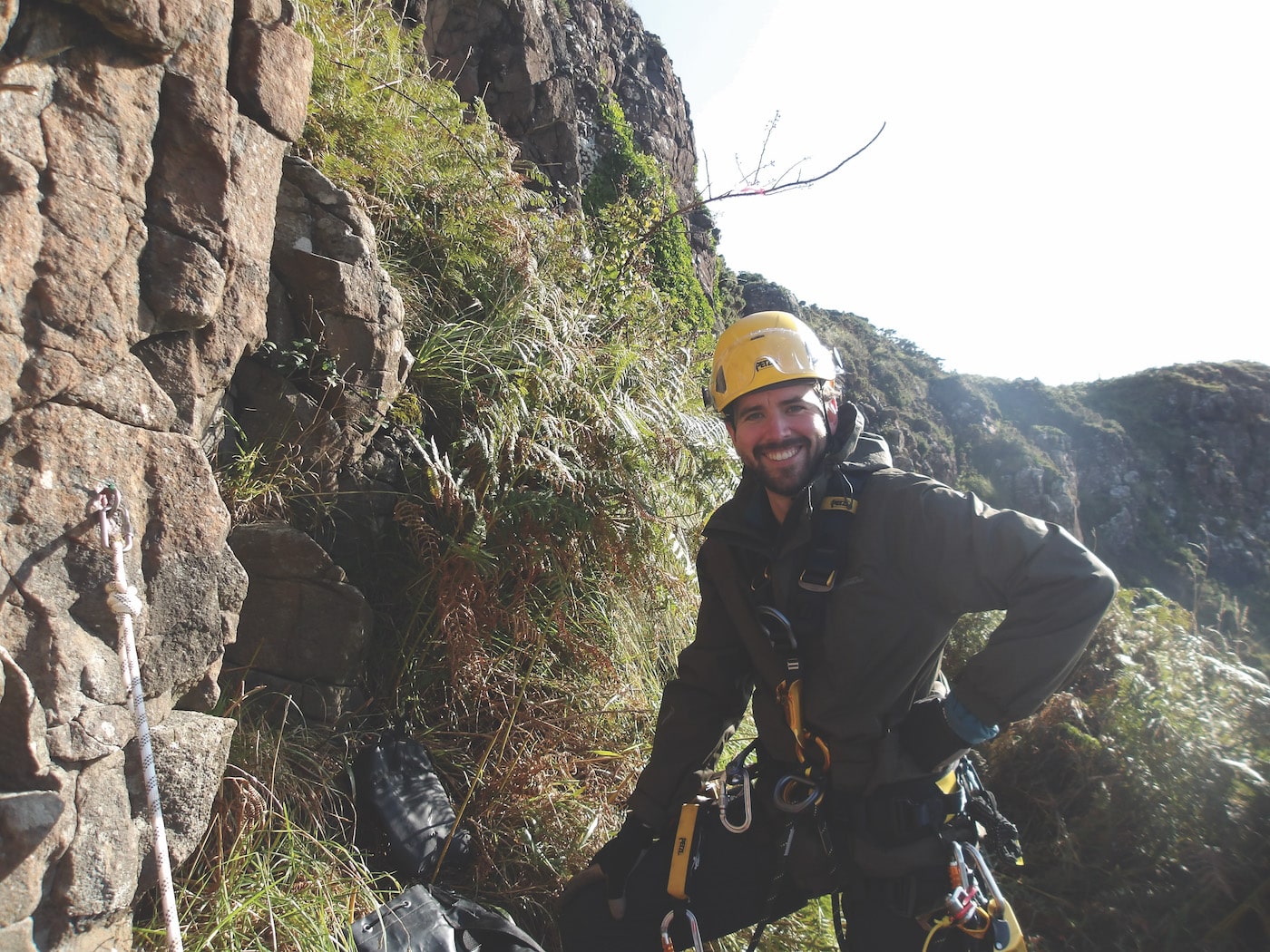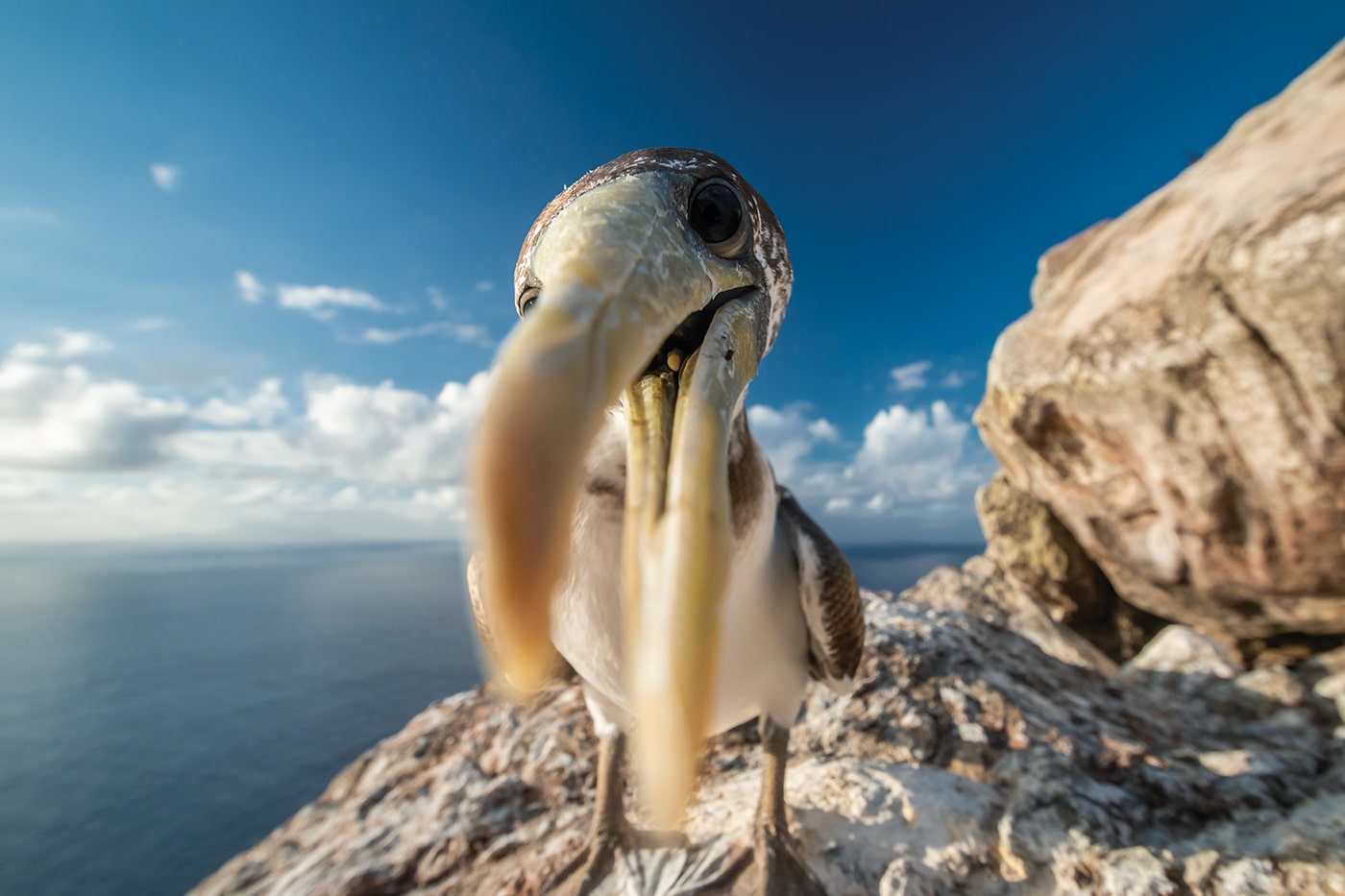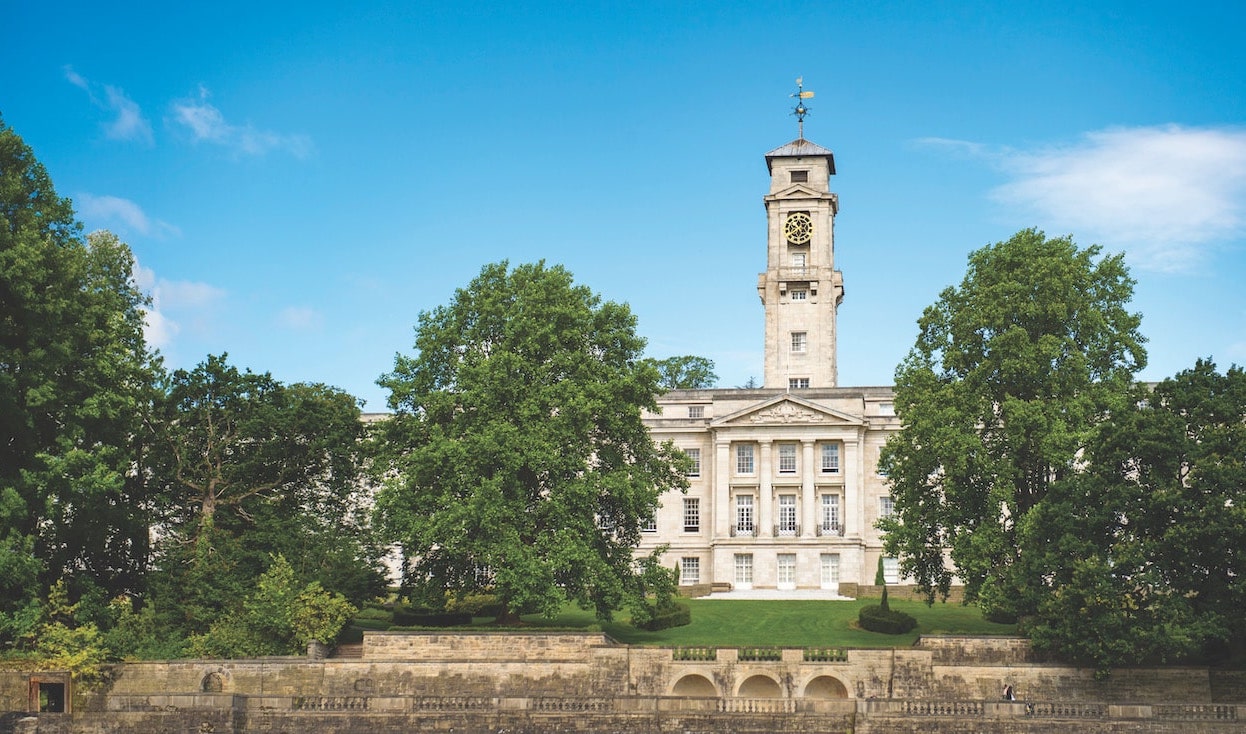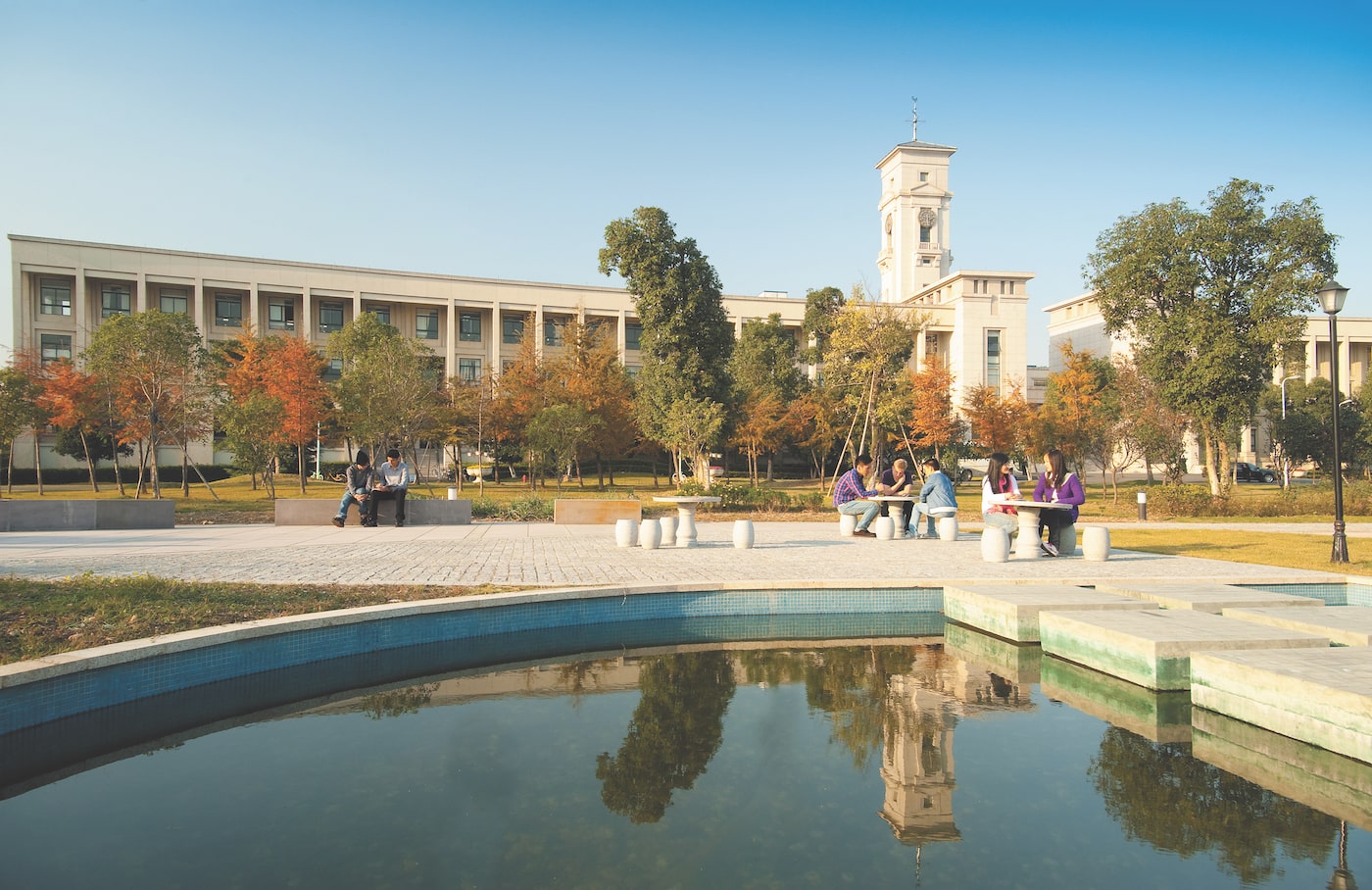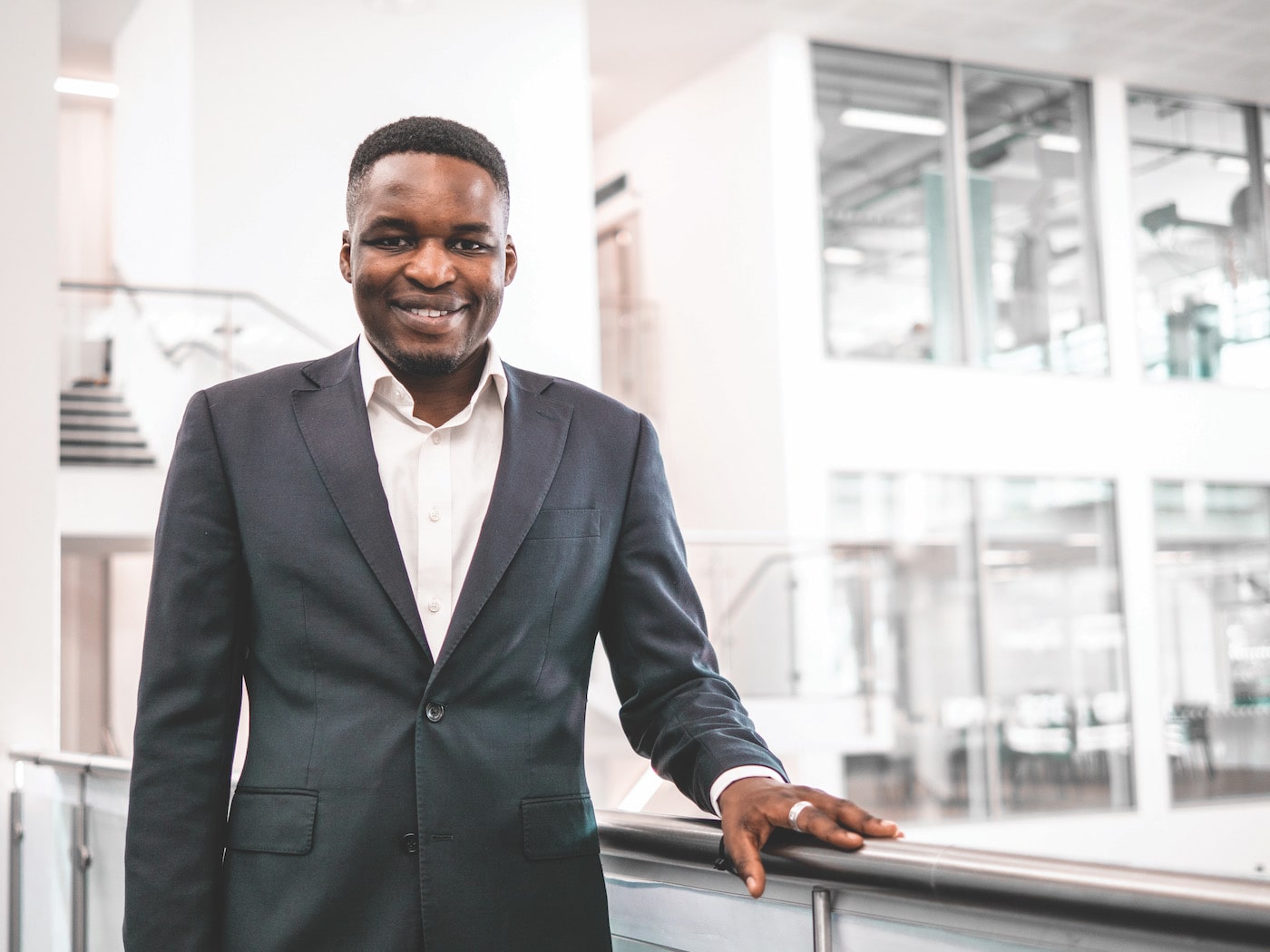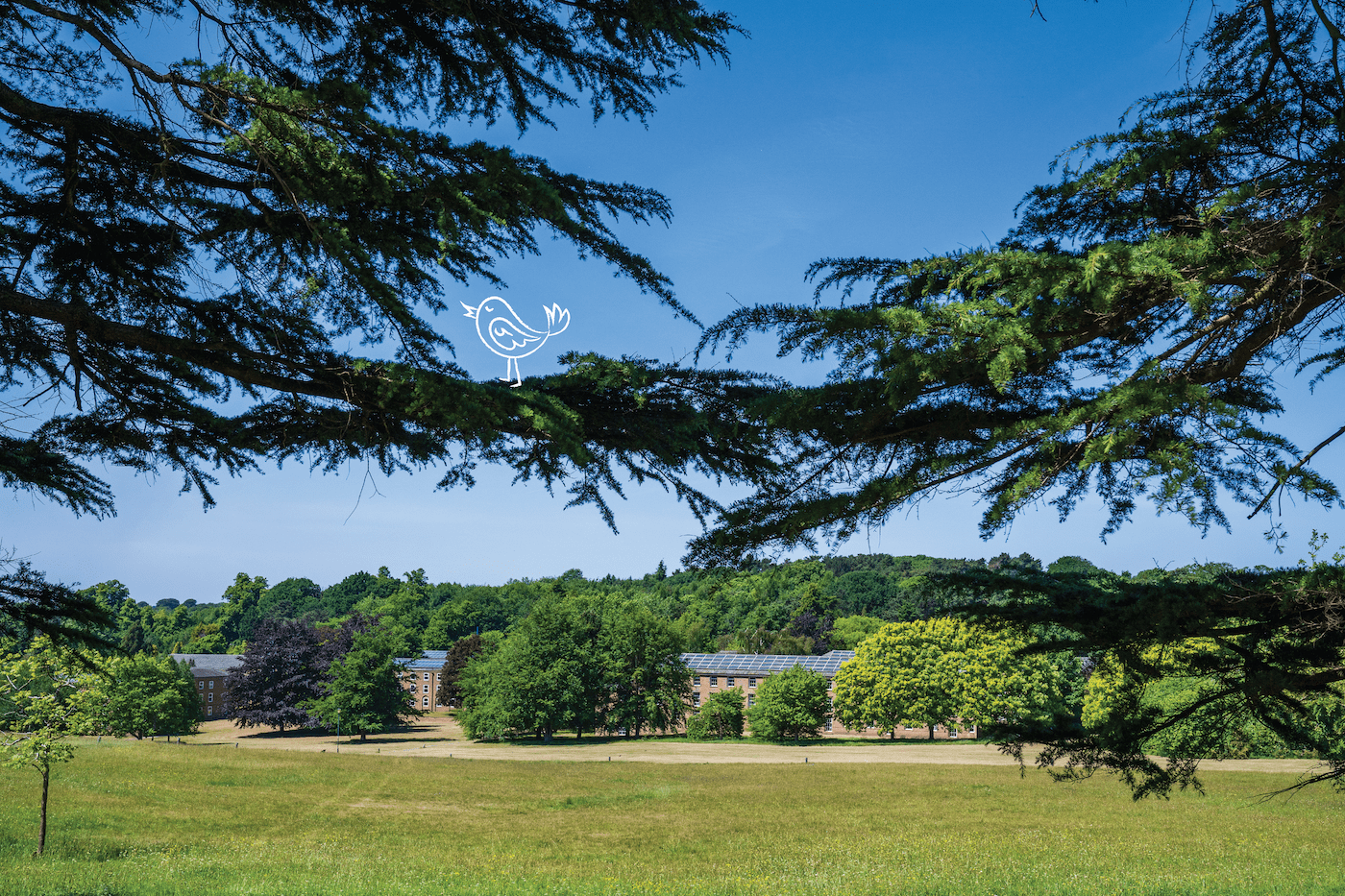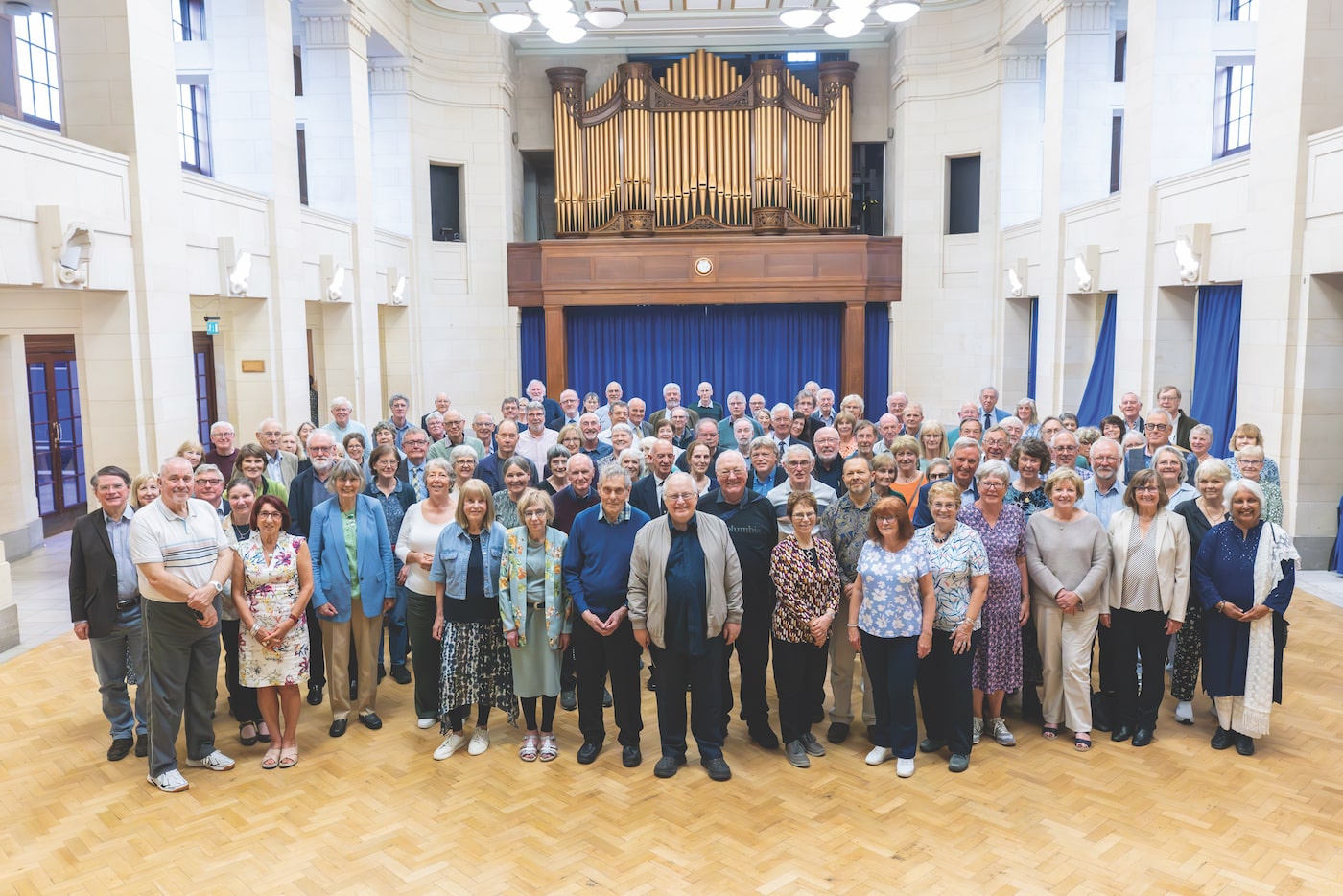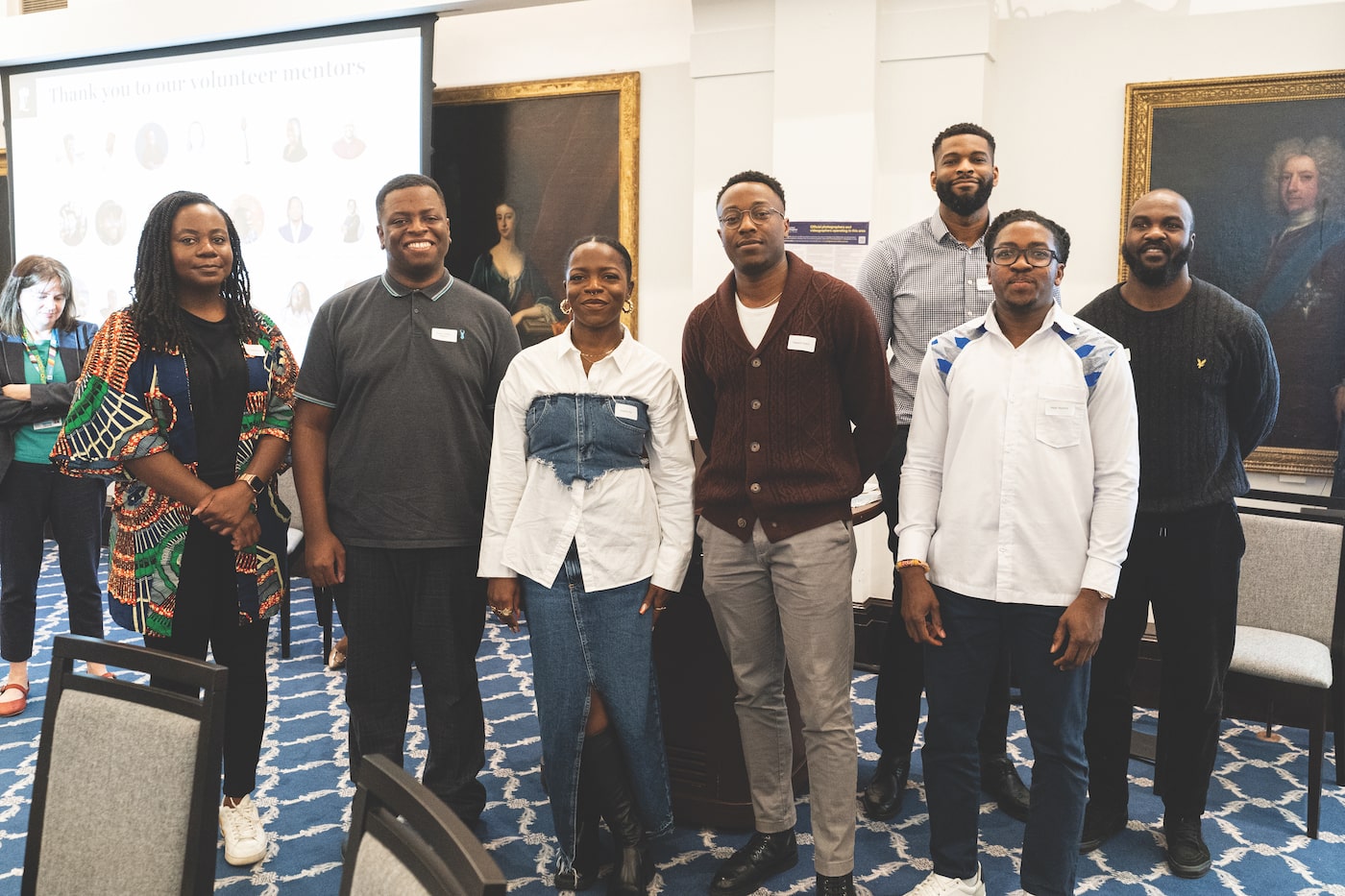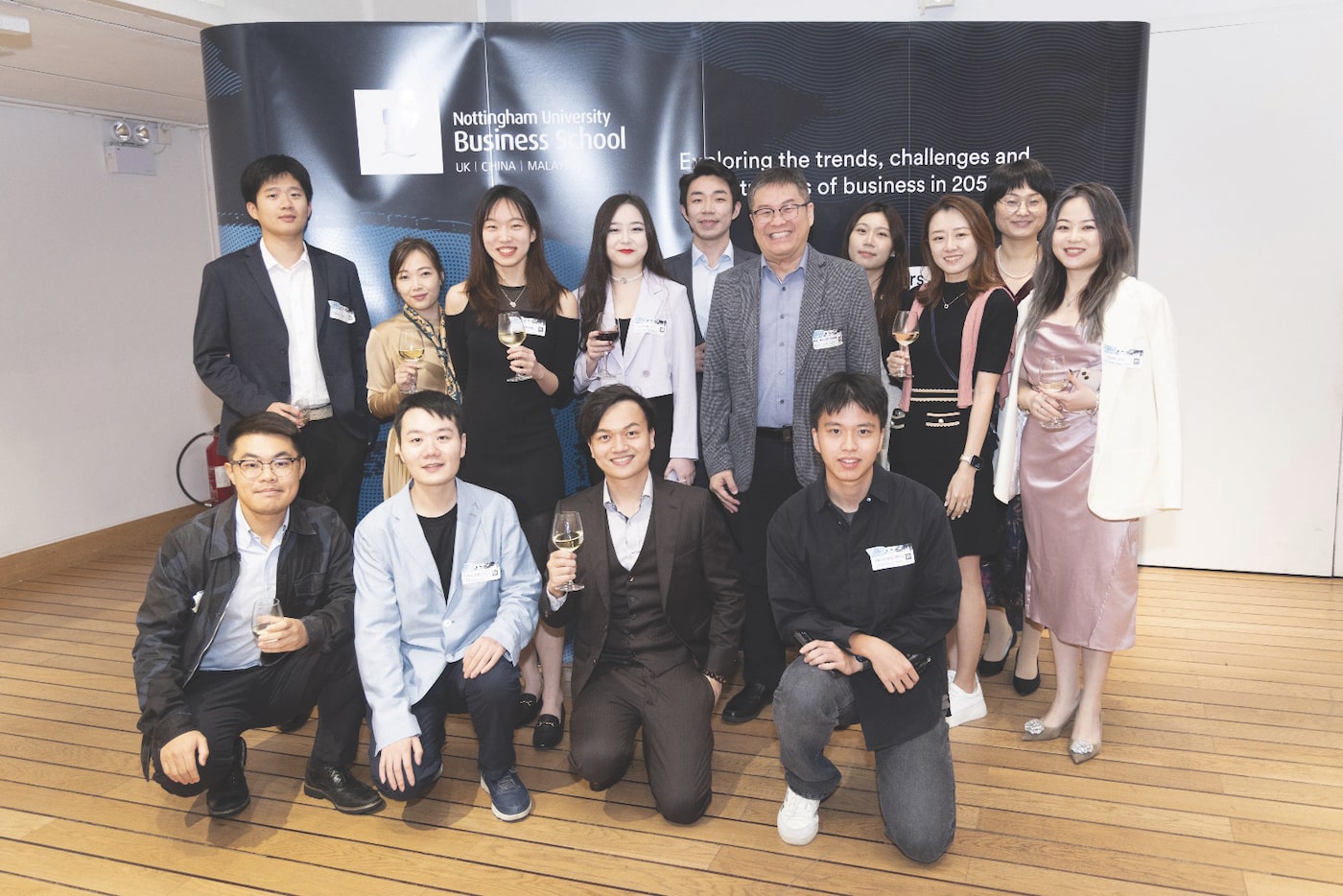Edited: Myles Griffin and Chris Hickman
Tomorrow’s world must change. In the face of a global climate crisis, our choices impact the ecosystem’s future. Though difficult, the University of Nottingham has the expertise to drive sustainability forward.
Sustainability however doesn’t always mean higher costs or inconvenience. While benefits may not be immediate, change can lead to wider prosperity – locally and globally.

Professor Tom Rodden, Pro-Vice-Chancellor for Research and Knowledge Exchange, introduces how the university’s innovation centres and partnerships have laid the foundation for growing prosperity through sustainable advancements.
“Our research and knowledge exchange activities are essential for fostering innovation and driving local economic growth, particularly in the pursuit of sustainable advancements.”
Launched in 2022, the Zero Carbon Cluster (ZCC) brings together leading researchers to promote interdisciplinary collaboration and accelerate the application of zero-carbon heavy transportation solutions in both commercial and policy spheres. Through partnerships with industry and government, the ZCC aligns research priorities with real-world needs, ensuring sustainable solutions are deployed at scale.
In a major step, the East Midlands Freeport announced over £5m, match-funded by the University of Nottingham and Loughborough University, to establish the Zero Carbon Innovation Centre at Nottingham’s Jubilee Campus. This centre solidifies the region’s role as a global leader in green industry innovation, attracting international investment and supporting global businesses.
Achieving net zero will also require careful consideration of human behaviour, which is why we have launched a policy commission to explore a just transition to net zero. The commission has called experts from various sectors to share insights on who benefits, the role of communities,
and how to achieve this transition, with findings to be published in November.
The university, known for its world-leading zero-carbon research, is frequently sought after by government and industry for advice on green technologies, including electrification, net zero aviation, and low-energy solutions for buildings. Our goal therefore is to ensure this advice consistently drives impactful, positive change for people.”
Take a look through three examples of how our work is already benefiting wider communities.

Achieving net zero aviation
As global pressures to address climate change intensify, the aviation industry is flying towards a crucial crossroad. The UK, leading the charge, became the first major aviation sector to commit to net zero CO2 emissions by 2050. The University of Nottingham is a pivotal player in this transition, advancing sustainability research that promises benefits far beyond reduced emissions.
One of the university’s most groundbreaking initiatives is its £5.3m research programme focused on hydrogen propulsion in aviation. This project aims to develop a revolutionary cryogenic hydrogen-electric propulsion system, potentially transforming how aircraft are powered. The two megawatt prototype engine, leveraging hydrogen fuel cells and power distribution at extremely low temperatures, could significantly reduce emissions and set new standards in efficiency. This initiative positions the East Midlands as a global hub for low-carbon aerospace innovation, attracting investment and talent to the region.
In tandem, the university’s work on intelligent electrical systems offers another crucial advancement. By reducing the size and weight of onboard generators, these new systems can drastically lower energy consumption during flight. A reduction of up to 15% in generator size not only cuts fuel usage but also enhances overall aircraft efficiency, supporting the industry’s shift toward sustainability.
The Nottingham Applied Materials and Interfaces lab’s research into lithium-sulphur batteries exemplifies the university’s commitment to innovation. These batteries, which are lighter and more cost-effective than traditional lithium-ion batteries, could revolutionise energy storage in aviation. Their ability to store more energy at a lower cost makes electric aviation more viable, accelerating the adoption of greener alternatives.
Additionally, the university’s collaboration with Boeing on recycling aircraft materials sets new sustainability benchmarks. This partnership has enabled Boeing to become the first manufacturer to recycle 100% of its excess carbon fibre, showcasing the potential for a circular economy within aviation.
Beyond environmental benefits, Nottingham’s research is poised to deliver significant economic and social returns to the East Midlands region as a whole. These advancements are expected to stimulate economic growth, create jobs, and develop new skills through targeted training and education. The influx of international investment will also drive infrastructure improvements, enhancing transport, facilities, and utilities across the region.
Nottingham’s pioneering research in sustainable aviation is not only a key driver toward net zero emissions but also a catalyst for broader societal and economic transformation. As these innovations take flight, they promise a future where aviation is environmentally sustainable and a cornerstone of regional prosperity.

Driving Indonesia’s electric revolution
Indonesia is poised to become Southeast Asia’s electric vehicle (EV) leader, with the University of Nottingham playing a crucial role in this green transition. Known for its net zero propulsion research, the university is driving real-world impact through collaboration with Indonesia. However, the nation’s reliance on fossil fuels threatens its 2060 net zero target. As the world’s ninth-largest greenhouse gas emitter, Indonesia must balance reducing emissions with economic growth, making transport electrification vital to its sustainable future.
Here, the University of Nottingham’s role is indispensable.The institution stands as the UK’s leading centre for knowledge exchange with Indonesia, leveraging its expertise to support the country’s transition to a low-carbon economy. The university’s Faculty of Engineering has played a crucial role in developing policies and infrastructure plans for EVs in Indonesia, directly contributing to the country’s green transport strategy.
The forthcoming Net Zero Translation Centre in Bandung exemplifies this impactful collaboration. Set to be a hub for training and innovation, the centre will focus on several key areas. It will upskill workers to support the emerging EV infrastructure, provide training for SMEs, polytechnics, and high school students, and facilitate the adaptation of Indonesia’s extensive two-wheeler fleet into e-bikes and e-scooters. This initiative will not only bolster Indonesia’s EV sector but also create new employment opportunities and drive local economic growth.
Moreover, the centre’s alignment with safety standards and its proactive engagement with Indonesian policymakers ensures that the training provided will be both relevant and practical. By fostering local expertise and supporting industry development, we are not only aiding Indonesia in its quest for net zero but also amplifying the economic and social benefits of this transition.
In summary, the University of Nottingham is not just a research leader but a crucial enabler of Indonesia’s green future. Through its innovative projects and strategic partnerships, it is helping to forge a path towards sustainable development and a cleaner, more prosperous future for Indonesia and beyond.

Greener picture
As a global leader, it’s not just about what the university can achieve through research and teaching, but also our approach to the operation of a large and complex estate. Over the last decade, we have invested significantly in both new buildings and major refurbishments such as Florence Boot Hall, all with sustainability at the forefront. More recently we have set an ambitious carbon reduction pathway aligned to the 2016 Paris Agreement and are currently slightly ahead of our carbon budget – we have already reduced our carbon emissions by over a third in the last 15 years – but the task ahead is significant.
As well as a climate crisis we are also in a global nature crisis. Here in the UK for example, since the 1930s, nearly 7.5m acres of flower-rich meadows and pastures have been lost. In Nottinghamshire alone, a reduction of 97%.
The spaces between our buildings provide a unique and cost-effective solution. Many of the manicured lawns of yesteryear have been transformed into wild meadows, restoring habitats and leaving grass to grow longer. This creates more homes and plentiful food sources for wildlife, as well as providing spaces for our university community to enjoy.
At the Riverside sports complex we have planted over 1,000 trees in collaboration with our sports teams. The lawned areas at Lenton Hurst and Keighton Hill have been transformed into wild meadows, and we have created a new woodland walk in the centre of University Park Campus.
Over the next two years as a partner of the Nottinghamshire-wide ‘Wild Campuses’* pilot we will be working to further increase the abundance and diversity of threatened species around our campuses. Crucially, it will also empower students, staff and young people across Nottingham to reconnect with nature and tackle the ecological crisis hands-on.
Find out more about the university’s commitment to sustainability.
*Wilding Campuses is a regional partnership project to restore local natural heritage, led by SOS-UK and made possible with the Heritage Fund and thanks to National Lottery players.
